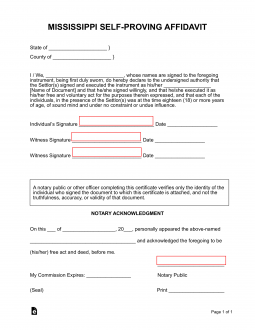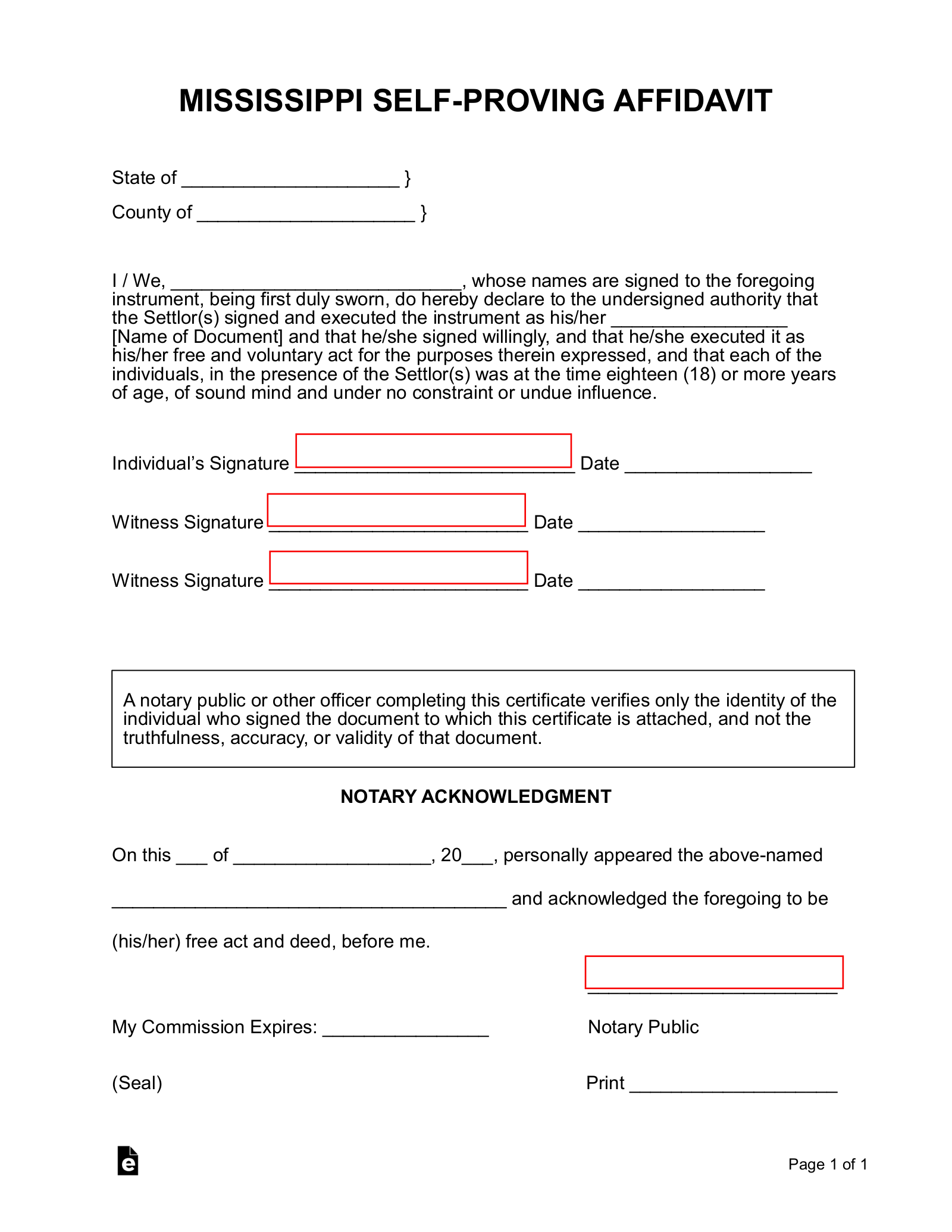Updated July 18, 2023
A Mississippi self-proving affidavit form is essentially written testimony from individuals who witness the signing of a last will and testament by its creator (testator). This testimony, in the form of a signed affidavit, claims that the witnesses were with the testator when he executed the will, and that he was of sound mind and under no external influence. In order for a self-proving affidavit to be valid, a notary public must witness all three (3) signatures on the document. A will must be proved valid by probate court after the testator has died before the distribution of the estate can commence. A self-proving affidavit will show the court that the will was executed in accordance with the law without requiring the witnesses to appear before the court.
Laws
- Statute – § 91-7-7
- Signing Requirements – Must be proved by at least one (1) of the subscribing witnesses and a notary public.


